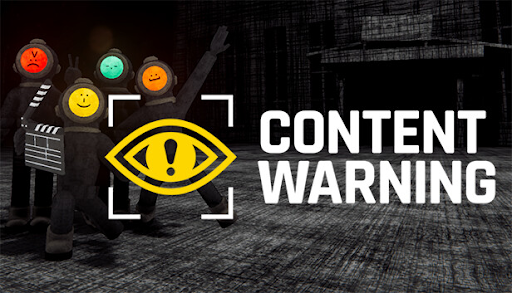Daisy Jones and the Six: Better or worse than the book?
The Amazon Prime adaptation of the bestselling novel didn’t have enough shine with new plot points and music to transcend disappointing shortcomings.

Credit: Amazon.com
First a bestselling novel by Taylor Jenkins Reid, Daisy Jones and the Six charts the path of a ‘70s rock band’s climb to fame and sudden fall, detailing the lives and love affairs of lead singers Billy Dunne and Daisy Jones, while throwing Billy’s wife, Camila, four other band members, and a multitude of side characters into the mix. Given the drama and nostalgia of the novel, it was only a matter of time before the story was developed into a streaming series, with Amazon Prime releasing the first episode on March 3, 2023.
Considering the history of television and movie adaptations of books, the novel by Jenkins Reid isn’t much different. Like any adaptation, it just isn’t possible to include every detail and scene portrayed in the book, so creators Scott Neustadter and Michael H. Weber had to take liberties and make it work for the show. While the series does much to preserve the integrity and original plot of the book, there are some key differences that viewers couldn’t help but heavily notice.
Some changes appeared to be for simply practical purposes in order to help the plot of the show flow efficiently, given it was limited to just 10 episodes. Following the timeline of Billy and Camila’s relationship, the show portrays Camila’s reluctance to go to California with Billy and the band as short-lived. She originally explained to Billy that she didn’t want to move for someone else and that her family in Pittsburgh needs her, yet quickly changes her mind. This is in contrast to the novel, where Camila originally declines Billy’s invitation and only agrees to move after he gets a record deal and proposes over the phone. This creates a more impactful change to how their relationship develops. I don’t think it was detrimental to the show to exclude this by any means, but I do think her unwillingness to go was glossed over in the show to keep the story moving. The show’s creators also took out an entire character for the sake of smoothness. Guitarist Eddie Roundtree (Josh Whitehouse) in the show is Pete Loving’s brother (the creators also changed the character’s last name). The show did not find Pete significant to the development of the plot, so they cut the character. In both the book and show, Eddie joins the band after Chuck leaves. The difference, though, is that the creators chose to change the reason Chuck left the band. In the novel, Chuck gets drafted for the Vietnam War, so he had no choice but to leave the band. In the adaptation, Chuck leaves to build a financially stable life as a dentist. These changes appear to be for practical purposes, but it wasn’t even nearly the biggest adjustment that the show’s creators made.
Not all changes were just for practicality, though. The creators took some heavy liberties that significantly changed the original plot, but these adjustments were definitely for the better. For one, the first meeting between love interests Billy (Sam Claflin) and Camila (Camila Alvarez) in the show is entirely different from the book. In Jenkins Reid’s story, Billy meets Camila after playing a show at a hotel where she works. However, the writers of the series adaptation had Billy and Camila meet at a laundromat. I appreciated this change, as it communicates Camila’s independence and savviness; when Billy alludes to his fame and asks if she knows who he was, she replies, “Should I?” The simplicity of this scene immediately allows viewers to grasp the strength of Camila’s character, a theme that holds true to the book. Thankfully, the show also shed more light on Simone’s character. In the book, Simone is really only portrayed as a big sister figure to Daisy, shielding her from as much of the chaotic Sunset Strip as possible and being the go-to “therapist friend” that Daisy calls in her times of need. While this persona is definitely well-portrayed in the show, the creators go a step further and lean into Simone (Nabiyah Be) as a person. In the adaptation, she is explicitly lesbian, given a love interest, and has more of a spotlight to showcase her musical performances that are almost equally as impactful as Daisy’s. Not only is Be a phenomenal singer, but she is an alluring actress who tackles struggles such as LGBTQ+ acceptance and sexual harassment in the music industry with class. Perhaps the most bold change the creators made was having Daisy and Billy kiss, especially in the earlier episodes. In the novel, there is no direct mention of a kiss, only close contact, but the could-have-been affair ultimately ends with Billy staying loyal to his wife Camila. In the show, however, Billy kissed Daisy during an argument in order to get her to sing a song he wrote with more passion. It is a decision I believe was made to get the show’s audience more involved, since a book can offer a multitude of thoughts and emotions that a show can’t incorporate as easily; adding a kiss was an effective way to tie the audience further in.
However, I didn’t love everything that the show changed, especially the diminished representation of Daisy’s highly tumultuous teenage years. Jenkins Reid makes it abundantly clear in her writing that Daisy’s adolescence was turbulent; she includes scenes of Daisy living alone as a young teenager and going to clubs every night, where she is introduced to the drugs, alcohol, and harmful relationships with men that hurled her headfirst into the addiction and self-sabotaging behaviors that defined her years as a young woman. The series touches on this, especially with one particular scene that alludes to Daisy being raped, but most scenes don’t force the viewer to unflinchingly look at Daisy’s past the same way that Jenkins Reid did with the readers of her book. The show’s failure to portray the magnitude of chaos that Daisy endured doesn’t allow viewers to fully grasp how unhinged her life became, thus not providing sufficient understanding for her actions later on.
Another aspect of the series adaptation that was highly-anticipated was the inclusion of the actual music that the band performs in the book written by songwriters as notable as Phoebe Bridgers and Marcus Mumford and compiled into an album for the show. They crafted some shining moments, such as Two Against Three, which is the only song on the album that is not really backed up by the band and features only Daisy’s voice on the track. I like that this song hones in on the singer-songwriter style Daisy developed prior to joining the band, as it feels more personal and delicate than the band-heavy songs.
The most famous song on the album, titled Look At Us Now, has a catchy chorus that lets Daisy and Billy’s voices contrast expertly. While the harmonies are interesting, the song is lyrically too repetitive, even to the point that I ended up skipping the end of the song. Unfortunately, my disappointment was echoed while listening to the vast majority of the music; it mostly feels merely half-done. In the title track Aurora, the chorus where Daisy and Billy’s raw, gritty voices sing, “I kinda thought this night was / gonna last forever” would have been fantastic if the lyric wasn’t repeated literally eighteen times (I counted) in the three minute and twenty-five second song. For such a high-profile song, you’d think the writers would add some more nuance. This was not an isolated case; No Words is simply Daisy and Billy repeatedly singing about how they can’t find the words to explain their feelings. I also noticed that some songs like Kill You to Try have no structure, making them feel incoherent.
Despite the musical shortcomings, I do have to acknowledge that I’m impressed with the actors for performing with such vocal professionalism; you’d have no idea that Claflin and Keough had little singing experience prior to the show, and hadn’t even sung together until they had both been cast. Their voices grate against each other in a compelling way, and the chemistry between the two characters rings clear in each song.
In its entirety, the show was predictable and simply okay. It isn’t the type of series that you will remember as the years go by, but rather is one you just enjoy watching in the moment. The cast portrays the show’s characters well, with bonus points to Claflin’s facial expressions for masterfully revealing Billy’s internal struggles. Yet even the talented cast couldn’t save the show’s half-baked, rushed writing; these failures on the creators’ part shone through the most, failing to capture the gritty authenticity of the novel that readers love so much.
jy/ew
For more breaking news and photos, follow The Wingspan on Instagram and Twitter @CHSWingspan.



